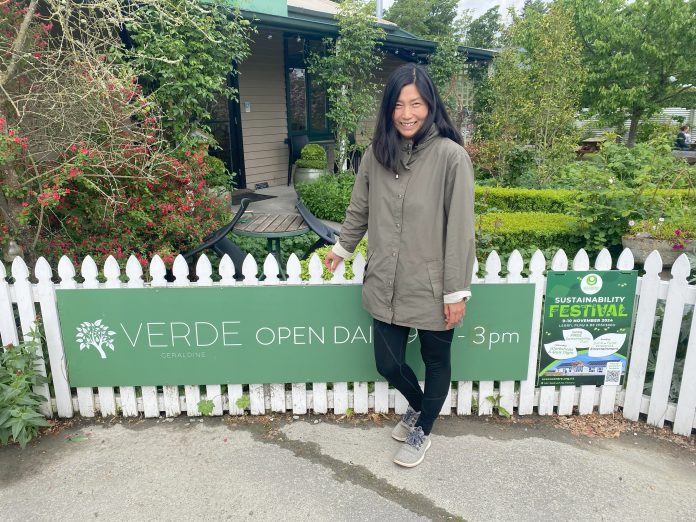
A hospitality business in Geraldine wants changes to the district’s green bin system to be given the red light.
Bo Choung-Mckenzie — who operates Verde with her husband Joe — said recent nationwide changes to the kerbside waste collection have forced the business to take a ‘‘substantial backward step’’ in its quest to minimise its environmental footprint.
The business had stopped providing single-use disposable coffee cups over a year ago — becoming the first eatery in South Canterbury to do so — offering alternatives like loan cups or recycled jars.
Dr Choung-McKenzie said coffee beans were delivered in large tins (rather than nonrecyclable plastic packaging), all food scraps went to a flock of local chickens, coffee grinds were collected by a local gardener, soft plastics collected and taken by staff to Christchurch for recycling and — on top of that — the business had undergone a waste audit by Enviro New Zealand which had helped identify ways to further reduce their waste.
Dr Choung-McKenzie said the business had reduced their landfill waste dramatically, ‘‘producing only one red bin each week, two at the most’’.
However, changes to the system had meant cardboard food packaging, compostable packaging, paper towels and serviettes — previously put in the green bins to be made into compost — now were diverted to the red bin.
She said nowadays they took out two or three more red bins a week ‘‘largely made up of compostable paper towels and serviettes’’.
With a background in environmental science including a doctorate in environmental biology, Dr Choung-McKenzie said the move was short-sighted and greatly reduced the capacity of households and businesses to minimise their environmental impacts.
She understood some compostable food packaging and coffee cups were a product of green washing, and had contained metals and microplastics which should be excluded from the compost.
‘‘However, paper towels and serviettes are a massive and valuable resource that can — and should — be re-used rather than sent to landfill.
‘‘Composting these products creates a valuable end product that can be reused in gardens all over the district, returning carbon and valuable nutrients back to the soil.’’
She said the process of composting — compared to disposing of the same products in landfill — also minimised the production of methane, ‘‘a substantially more potent greenhouse gas than carbon dioxide’’.
‘‘In fact, landfills are now being recognised as one of the biggest contributors to greenhouse emissions and human-induced climate change.’’
She had learnt the council had recently installed a burner (or flare) for the methane produced from the Redruth landfill to minimise climate change impacts.
‘‘This exemplifies to me, again, how Timaru District Council could provide the blueprint — or the gold standard for waste management for other councils to follow.’’
She said with a relatively advanced waste management infrastructure already in place, the council could have been an example of one which was already progressive in this area.
‘‘This is infrastructure we’ve invested in as ratepayers and we’re no longer fully using it. We also have a rapidly diminishing landfill to think about, and costs for a new one would be huge for ratepayers and our environment.’’




